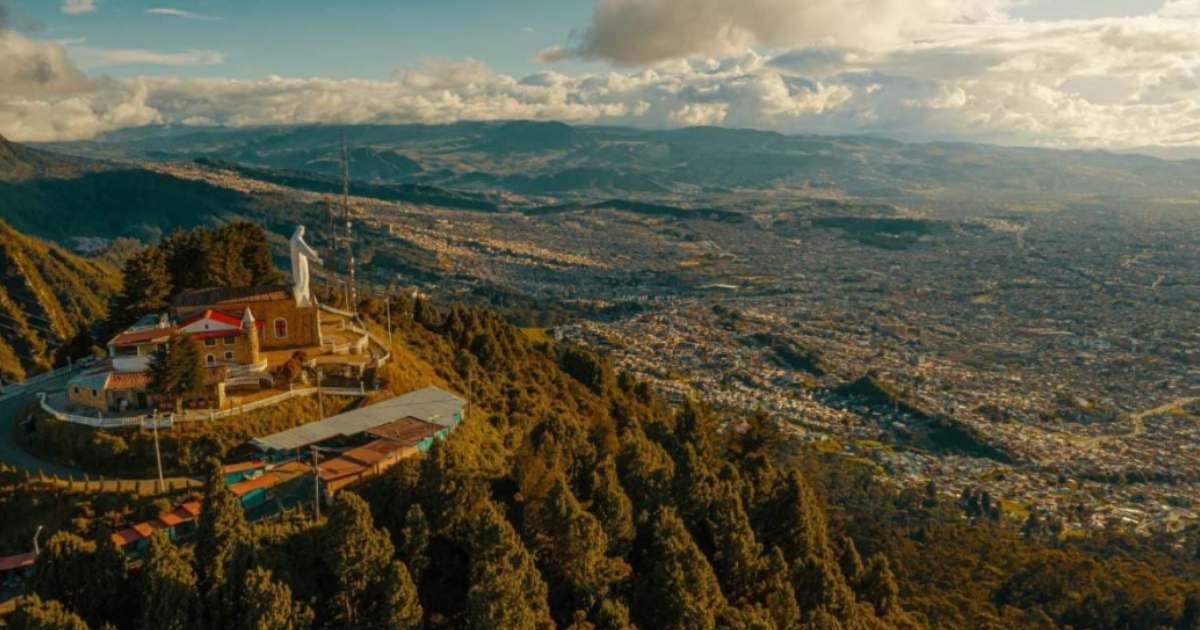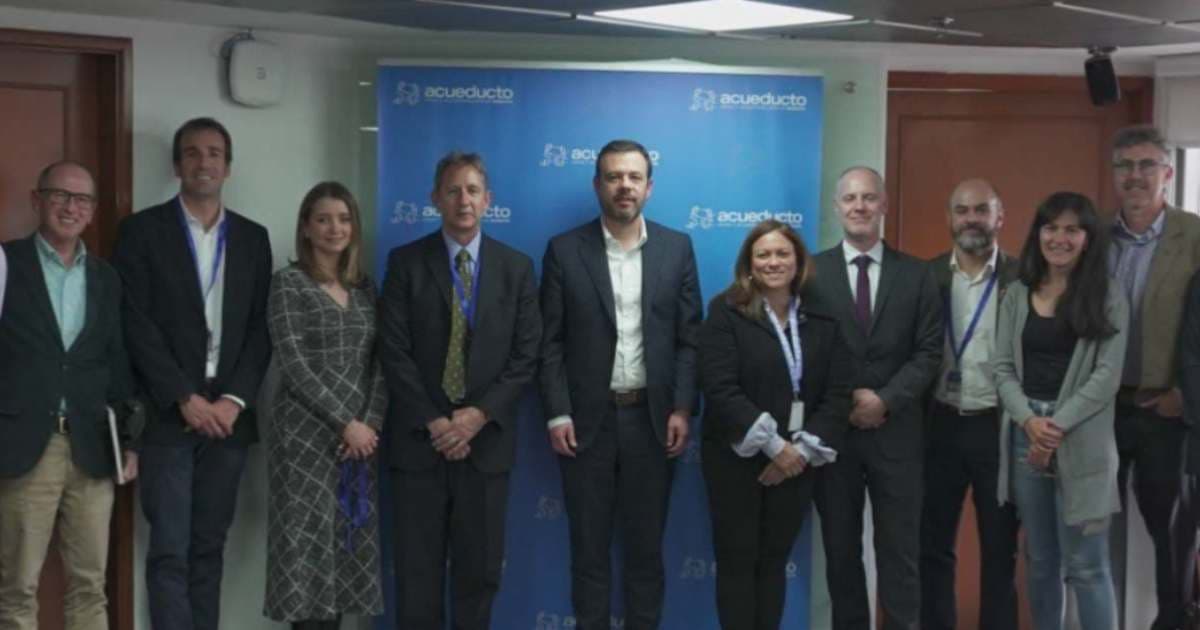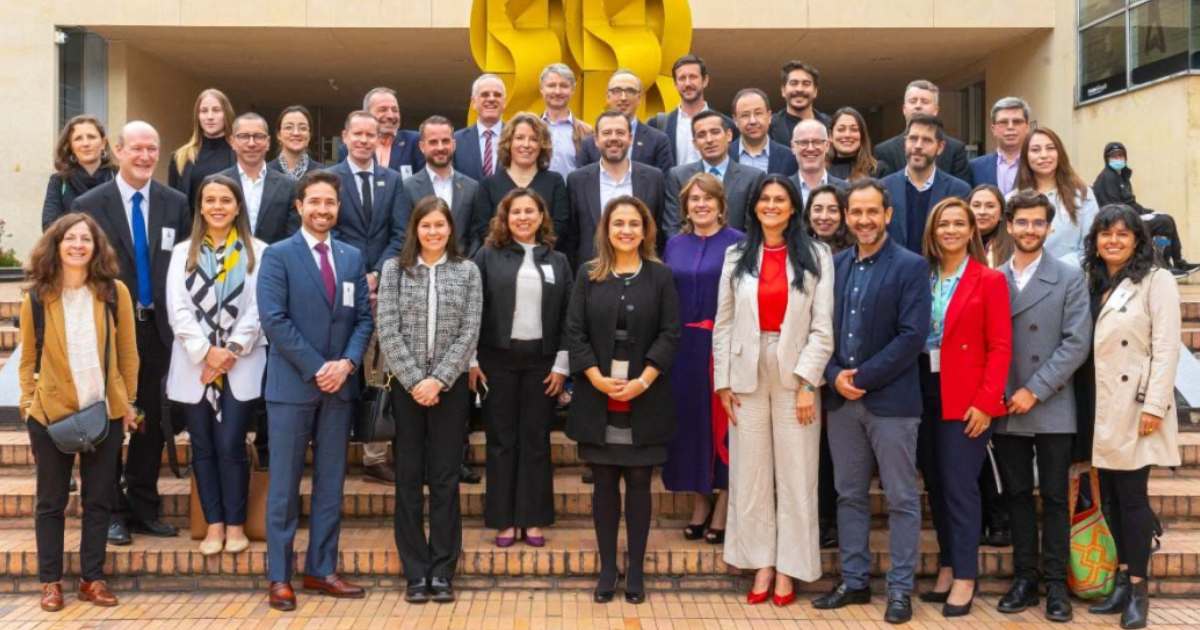Translated by Andrés Martínez Forero
The Mayor of Bogotá, Carlos Fernando Galán, and the Chief of Mission for the International Organization for Migration (IOM) in Colombia, Fernando Medina Donoso, signed a Memorandum of Understanding (MoU) to boost mutual cooperation in promoting sustainable solutions to forced displacement and effective socioeconomic integration of the migrant population.
You might be interested in: Internationalization Strategy: “Bogotá, a City with Open Doors to the World”
Mayor Galán expressed his gratitude on behalf of Bogotá for the effort and support received from IOM, highlighting its importance.
“I would like to express gratitude on behalf of Bogotá because the effort and support provided by IOM have been very significant. This step we are taking with the Memorandum of Understanding is an additional step in that cooperation and in the understanding that Bogotá has to build on what has been constructed and contribute to what has already been done,” he stated.
Fernando Medina, the IOM's Chief of Mission in Colombia, emphasized that “from IOM, we will maintain our efforts, dedication, and commitment to honor the postulates of this Memorandum of Understanding, always seeking the greatest benefit for the populations in vulnerable conditions in the city of Bogotá, supporting the actions undertaken from different city instances such as the International Relations Office; the Peace, Victims, and Reconciliation Advisory; the Migration Affairs Management, the Secretariats of Health, Social Integration, Education, and those that consider that we can contribute to their institutional priorities.”
This MoU aligns with the ‘Bogotá Camina Segura’ City Development Plan and its goal to strengthen the management of technical and financial resources with international cooperation for the social and economic development of the city. According to the monitoring dashboard of Venezuelan migrants in Colombia, Bogotá is home to over 589,000 Venezuelan migrants and faces unique challenges in ensuring their human rights, requiring collaborative and multidimensional solutions.
Additionally, the country's capital hosts approximately 360,000 victims of the armed conflict and about 563 ex-combatants and signatories of the Peace Agreement with the FARC. The city faces the challenge of consolidating itself as a territory of peace and reconciliation where everyone can start anew.
The MoU establishes key areas of cooperation that include migration management and sustainable solutions to displacement, institutional strengthening, and raising public awareness about migration. This agreement seeks not only to improve the conditions and quality of life of migrants, victims, and displaced persons but also their full integration into the social and economic fabric of the capital.
This cooperation instrument is expected to catalyze new initiatives and programs that address the immediate needs of migrants and displacement victims, from a perspective of sustainable solutions and an intersectoral and multi-actor approach. Similarly, it seeks to promote the development and territorialization of public policies on the stabilization of migrant communities, peace, and health.
With the development of joint projects including labor and social integration programs, awareness campaigns, and training efforts for public entities and civil organizations on migration and human rights issues; this Memorandum of Understanding represents a vital framework for addressing one of Bogotá’s most significant challenges with solidarity and efficacy, reflecting the development potential in migration.
Also read:Bogotá Views Migration as a Developmental Asset for the City
Furthermore, with this signature, IOM reaffirms its interest in promoting long-term partnerships with national and local authorities; facilitating migration management in a safe, orderly, regular, and humane manner, leaving no one behind.
About International Organization for Migration
The International Organization for Migration (IOM), established in 1951 and part of the United Nations system, is the leading intergovernmental agency in the field of migration. It works to ensure orderly, safe, and responsible migration, benefiting all involved stakeholders.
With 175 Member States, eight Observer States, and offices in 171 countries, IOM supports migrants worldwide, formulating effective responses to changing migration dynamics and providing advice on migration policies and practices.









